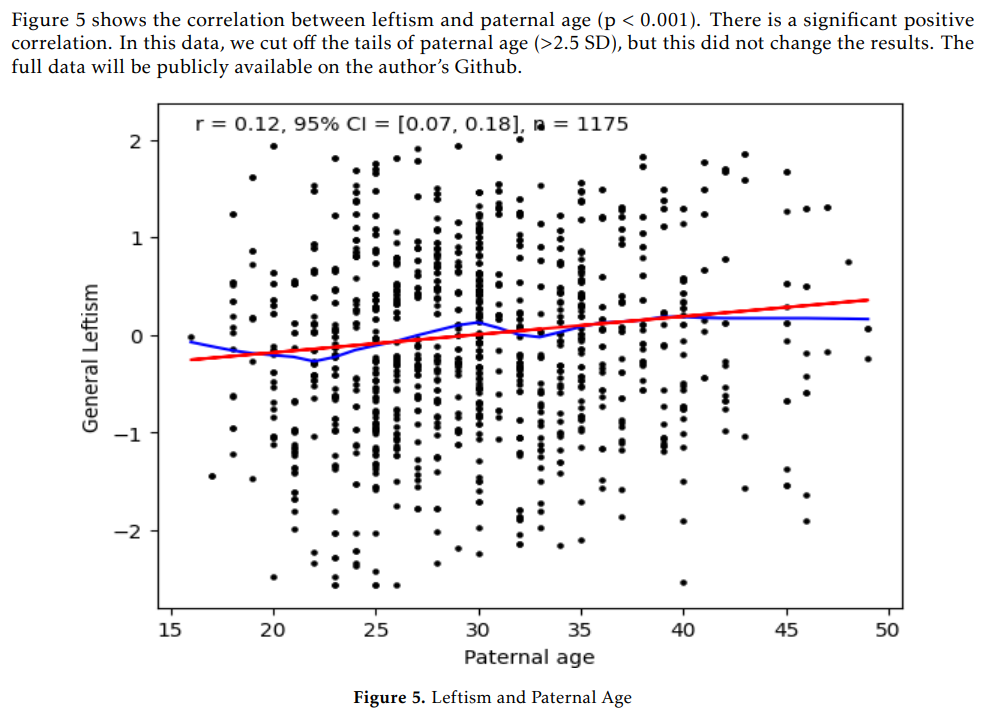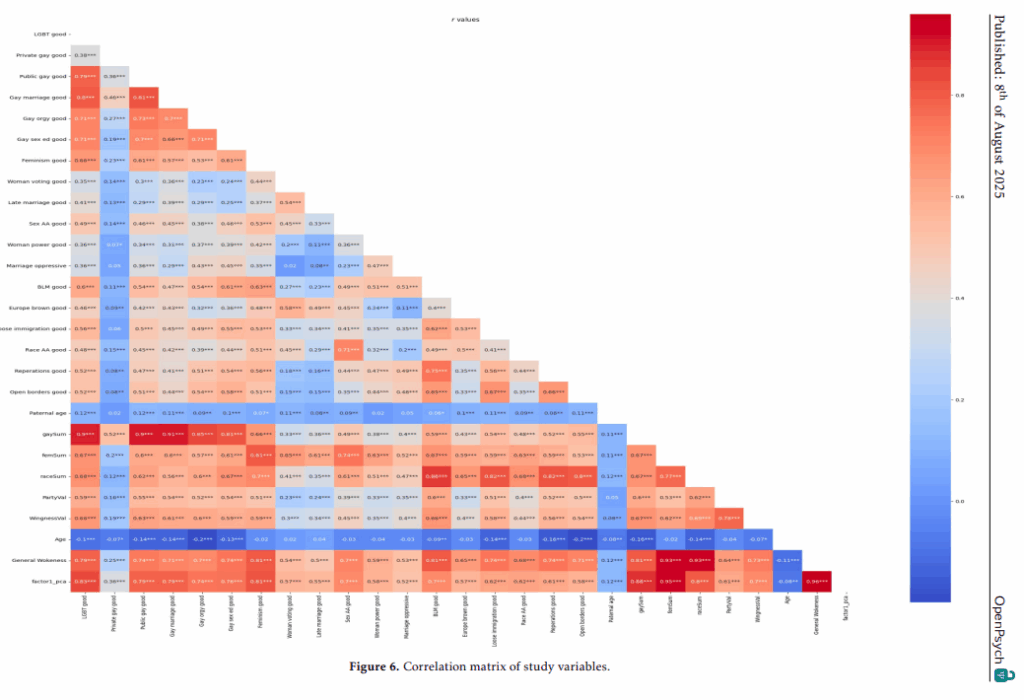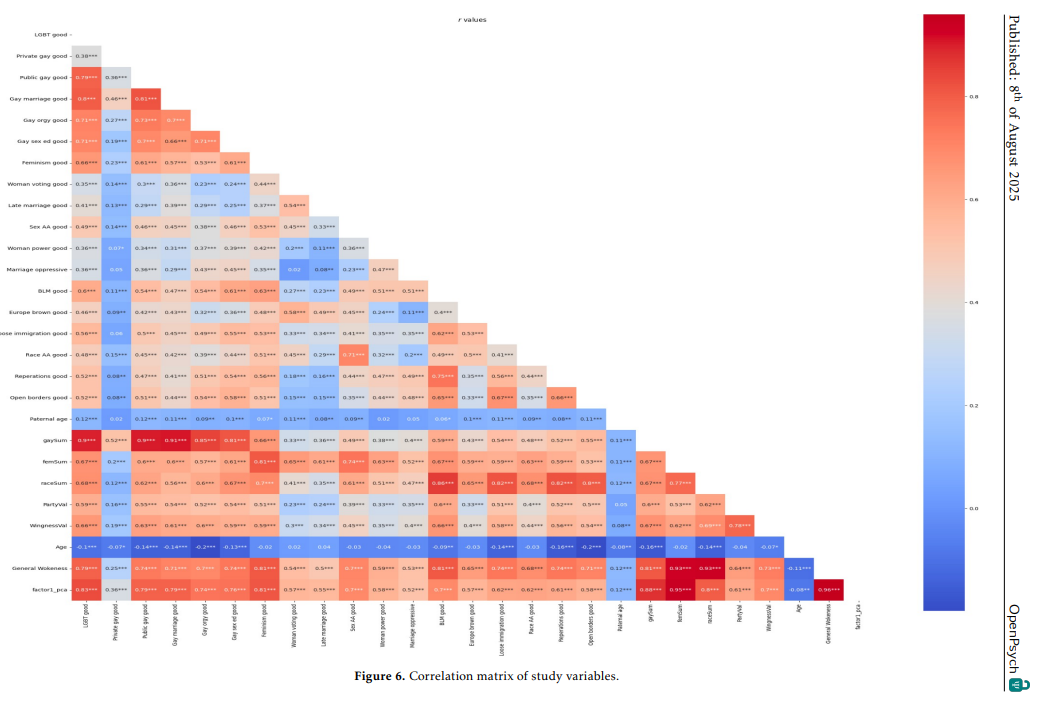New paper from Joseph Bronski:
Previously, we showed that there is a paternal age effect on leftism (increasing leftism with increasing age of father when born), using a binary classification based on three items regarding Black Lives Matter, LGBT, and feminism [1]. A major limitation of that study was the use of the binary measurement. In this paper, we show that the same effect is detectable with a new, near-Gaussian measurement of leftism. The correlation between this measurement and paternal age was r = 0.12 (p < 0.001). This measurement has high reliability (Cronbach’s α = 0.93) which far outperforms the commonly used Wilson-Patterson Conservatism Scale (α = 0.71) [2] as well as high criterion validity, as evidenced by the Cohen’s d between Republicans and Democrat on the measurement (d = 2.31, p < 0.001). Likewise, we show that, as before, there is no significant correlation between general leftism and age when having a child in fathers, suggesting this result is not due to older fathers being more leftist.
In this work, Bronski continues testing his thesis that increasing leftism in modern times is a result of older average paternal age. Here’s the punchline:

Here’s the OLS regression with Paternal age, participant age, on General Leftism:

He published the covariance matrix:

Paternal age increases mutation load, which has been confirmed with direct molecular evidence:
There is a chance that this omission is confounding to the results presented here. Certain other literature on the same topic is similarly weak. IQ has a similar polygenic structure to conservatism, and a paternal correlation of a similar magnitude to the one found here has been found by Wang with controls for parental IQ [8]. This correlation did not weaken when controlled for maternal age, but the analysis lacked the power to properly control for birth order, so it is unclear what the independent effect of birth order on IQ is and how this confounds the paternal age correlation. Mental illness correlates with leftism on other scales [10], and paternal age effects do not weaken when birth order is controlled for in mental illness [9]. It is possible that birth order explains some of the paternal age correlation, and it would be advantageous to verify this directly for leftism as well as IQ.
However, robust correlations between paternal age and mental illnesses have been found in high-powered family designs which find the effect of paternal age on a trait within a family controlled for birth order and maternal age [16][9]. These effects are of the magnitude observed here and predicted by the model. Additionally, there is direct molecular evidence for the impact of de novo mutations operating through paternal aging on schizophrenia, autism, congenital heart disease, epilepsy, and intellectual disability [17]. Assuming the effect on intellectual disability is through shifting the IQ mean downwards, this implies a robust paternal age correlation with IQ of at least 0.05, in line with the predictions of the model for a highly polygenic trait [18].
However, the only direct evidence for a paternal age effect on leftism is this study and the previous one using a binary measurement. With the resources, it is possible to do a large study which removes uncertainty in this area. This study should collect family level data, and should genotype everyone. It should have a sample size of at least 10,000, and IQ as well as leftism should be measured for parents as well as children. Leftism should be measured in multiple ways, using this scale, as well as Wilson-Patterson conservatism, self-classification, party alignment, and support for a representative sample of specific policies. Due to having family level information, the independent effects of birth order, paternal age, maternal age, and natural selection would be able to be approximated for different measures of leftism with low uncertainty.
Read the paper for the conclusion!

Leave a Reply